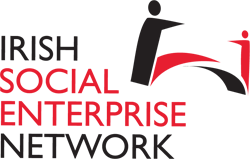Erasmus+ FULL LIFE Project

This final project report is available here: https://www.socent.ie/wp-content/uploads/2022/10/EN_FULL-Life-publication.pdf
FULL LIFE – Strategies, methodologies and tools for the inclusion of people with cognitive, physical and psychic disability through work insertion and housing autonomy support
Project Coordinator: ARCA Cooperativa Sociale
Project Information: 2019-1-IT02-KA204-062207 Oct 1, 2019 Feb 28, 2022
Partners:
Réseau d’Entreprises Sociales (BE) ,
CARITAS SABAC UDRUZENJE (RS),
Institut de l’entreprise et de l’innovation sociale (FR),
Socent Company Limited By Guarantee (IE),
ASSOCIACAO NOVA AURORA NA REABILITAE REINTEGRACAO PSICOSSOCIAL-ANARP (PT),
Galileo Progetti Nonprofit Korlátolt Felelösségü Társaság (HU)
Key words:
Inclusion – equity ;
Disabilities – special needs ;
Access for disadvantaged
Project Summary:
Persons with disabilities are entitled to live independently in their communities, to make their own choices and to play an active role in society. Every person deserves sufficient standards of protection for the civil, cultural, economic, political and social rights on the basis of inclusion, equality and non-discrimination.
The EU promotes the active inclusion and full participation of disabled people in society, in line with EU Commission’s European Disability Strategy 2010-2020, UN Convention on the Rights of Persons with Disabilities (UNCRPD), European Charter of Fundamental Rights, Lisbon Treaty, and forms part of the Europe 2020 Strategy.
It is expected that, by 2020, approximately 120 million Europeans will have a disability, but still the EU-level indicators show a clear gap with the rest of the population. Access to labour market remains one of the main challenges for people with disabilities, such as the linked high early school leaving rate for disabled people (around the double compared to persons without disabilities).
Support for housing autonomy is largely insufficient, missing a European commonly agreed definition of ‘institutions’ or ‘community based services’, separation from families and local communities is often imposed, and is limited the right to choose and control daily life, including sphere of family, friendship and love, professional career, free time etc.
There is also a big gap between the EU countries on approaches and set up and running of services for persons with disabilities and in life quality, contrary to the principle of equal rights for all EU citizens.
FULL LIFE contributes to the EU Strategy 2010-2020 goals, especially on PARTICIPATION, EQUALITY, EMPLOYMENT, EDUCATION and TRAINING, SOCIAL PROTECTION promoting deinstitutionalization thanks to 7 short trainings, 2 Transnational Project Meetings, study visits, exchange of good practices, comparison between systems, contexts and services, discussion among professionals, involvement of public representatives and decision makers, both during trainings in each country, a Final Publication including the project results, the dissemination of project outputs and a Recommendation delivered to European decision bodies.
It promotes the cooperation among different institutions and professionals working in the inclusion of people with intellectual and/or psychosocial disabilities: government agencies, non-profit organizations, social enterprises, associations, in order to give a “transversal” response to a complex problem, involving professional figures and bodies with different skills and mission.
FULL LIFE involves around 200 participants, workers in the project partner organizations: coordinators, managers, educators, support staff, social workers, psychologists, job coaches, work insertion tutors, life coaches and other professional figures involved in the project topic. It promotes the improvement of quality of services and policies for inclusion of disabled people at local and EU level, the professionalism of social workers, raises awareness and increases the sensitivity to the topic, carries out a lobbying action to accelerate and improve the better policies for autonomy and full exercise of rights, and promotes the birth of new initiatives to achieve the objectives of the EU strategy, and also explores and highlights how persons with physical, intellectual disability and with mental health problems experience autonomy, inclusion, participation in their lives across project countries.
The project partnership is composed of organizations representing 7 European countries (6 Members states and 1 candidate): Réseau d’Entreprises Sociales (Belgium), Institut de l’entreprise et de l’innovation sociale (France), Galileo Progetti Nonprofit Kft. (Hungary), Socent Network (Ireland), ARCA Cooperativa Sociale (Italy), Associação Nova Aurora na Reabilitação e Reintegração Psicossocial (Portugal), Caritas Šabac Udruženje (Serbia).
All these organizations, with different professional profiles and missions, work with the common aim of promoting social inclusion of people with disabilities and building a more inclusive and equal European Union.

